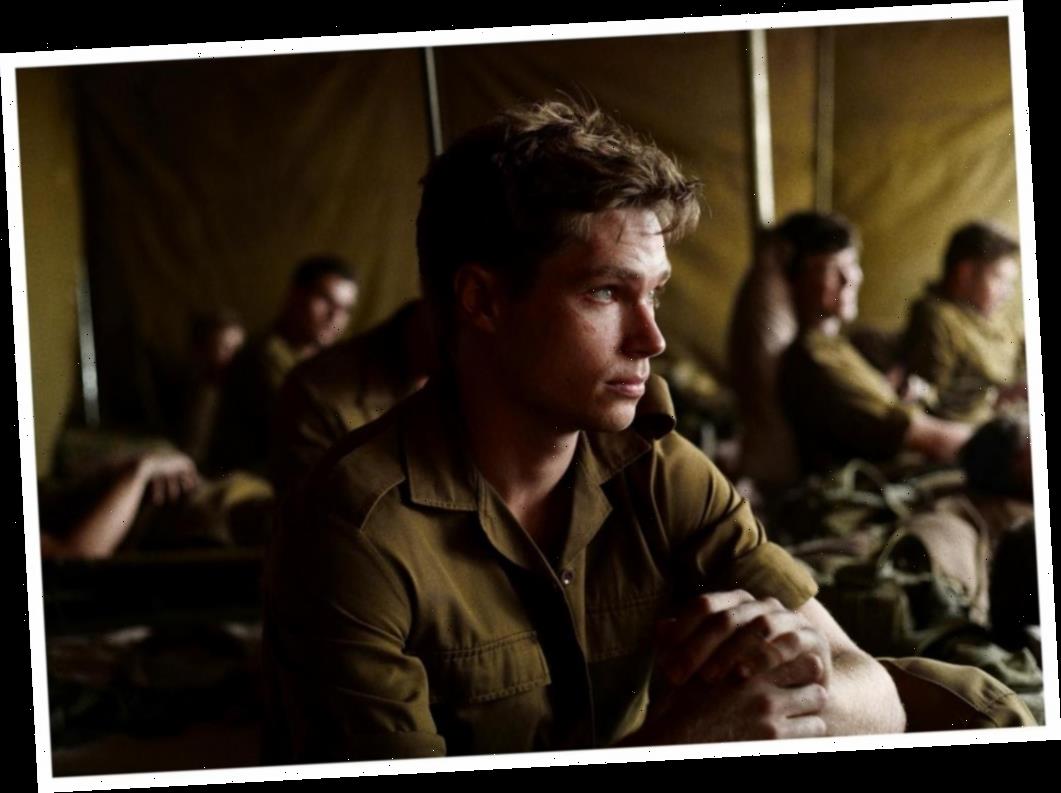Given the Apartheid-era backdrop of Moffie, there are more than enough prejudices to go around — anti-black, anti-gay, anti-communist, anti-British, for starters — and South African director Oliver Hermanus makes nuanced use of all of them in his very fine fourth feature. Premiered at the Venice Film Festival in 2019, the film is at last being released in the U.S. by IFC beginning April 9 and is nominated for a BAFTA for Outstanding Debut By A British Writer, Director or Producer,
The title is derogatory local slang for queer and, from the evidence on view here, one gleans that there cannot have been many less gay-friendly places on Earth in 1981 than South Africa. Based on an autobiographical novel by south African writer Andre Carl van der Swart, the film lifts the lid on same-sex desire just enough to stir the pot but refuses to indulge in any unrealistic wish fulfillment when depicting a time when discovered transgressions provoked the most extreme consequences.
The geo-political situation of the period was extremely complicated and represented one of the last East-West conflicts fueled by Soviet and Cuban involvement. These global issues matter not one whit to the story at hand other than for the way they triggered the enforced army proscription of all late-teenage Afrikaner men.
Thus swept up is Nicholas van der Swart (Kai Luke Brummer), a good-looking lad who, as Full Metal Jacket hadn’t been made yet, couldn’t possibly have been properly prepared for what was in store for him in basic training. His drill lieutenant might not be as colorful as R. Lee Ermey, but he does offer as motivation, “The black savages are on our doorstep. So close we can smell them.” Cheekily, Hermanus here tosses in a little Kubrick tribute by way of a classical excerpt from the Barry Lyndon soundtrack.
Thus inspired, the young white soldiers are shoved into a very close approximation of hell. Without spending undue time on it, the screenplay by Hermanus and Jack Sidey acutely captures the middle-class, well-educated nature of most of the conscripts who suddenly find themselves under the boot-heel of a ferocious officer who enjoys reminding his charges that, “You are no longer someone.”
There’s no such thing as privacy at boot camp, but there are group showers and a boxing match as well as momentary looks and even some brief touching that suggests a live current between Nicholas and another, seemingly more savvy lad, Stassen (Ryan de Villiers). This does lead to some momentary touching and solitary self-satisfaction on Nicholas’ part. But both know that to go further would be ruinous. The boys are daily trained and worked to the limit and sometimes beyond, so much so that one recruit blows his brains out while the others play volleyball.
The homoerotic vibe running beneath the surface is unmistakable, but so is a sense of constraint that keeps most, if not quite all, of the lads on the straight-and-narrow. As if this were not enough, Hermanus chooses this moment for an extended flashback in which a curious pre-pubescent Nicholas is ferociously accused of “spying” upon a fellow in a pool locker room. This little excursion to another time, another place, effectively locates the origins of Nicholas’ prudent caution in revealing his sexual hand, but it also yanks you out of the building narrative a bit at a pivotal moment.
Just as Full Metal Jacket made the abrupt jump from training camp to the heart of darkness, eight months later — and after an hour of screen time — Moffie moves its young soldiers to the front. Rarely has a more beautiful spot served as a combat zone. Sent on a nocturnal patrol in a savannah (the nighttime footage is particularly well shot by cinematographer Jamie D. Ramsay), the boys receive fire and are sobered by their first taste of death in warfare.
The very end is bit soft compared to most of what’s come before, but this doesn’t alter the fact that Hermanus has delivered a war film distinctively different from others, partly due to the particular conflict he’s chosen to dramatize, but much more from the perspectives through which he asks the viewer to consider things, historically and personally. Based on what he’s done here, it wouldn’t be surprising to see him make the jump to bigger international projects sooner rather than later.
International Critics Line
Int’l Critics Line: Anna Smith On Chile’s Oscar-Shortlisted ‘The Mole Agent’
Int’l Critics Line: Todd McCarthy On Tunisia’s Oscar-Shortlisted ‘The Man Who Sold His Skin’
Int’l Critics Line: Todd McCarthy On Bosnia’s Oscar-Shortlisted ‘Quo Vadis, Aida?’
Read More About:
Source: Read Full Article






